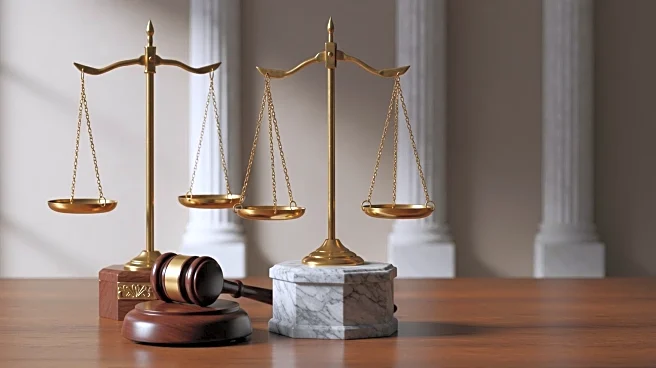What is the story about?
What's Happening?
A federal judge has ordered the closure of the Trump administration's 'Alligator Alcatraz' immigration jail in Florida, citing environmental damage to the Everglades. The ruling prohibits new detainees and mandates the removal of infrastructure within 60 days. The facility has faced criticism for harsh conditions and denial of due process. Environmental groups and a Native American tribe sued the state and federal government, arguing the jail's construction harmed the sensitive wetlands. The decision is a blow to the Trump administration's detention and deportation agenda.
Why It's Important?
The closure of 'Alligator Alcatraz' represents a significant victory for environmental groups and local stakeholders advocating for the protection of the Everglades. The ruling underscores the importance of adhering to environmental laws and the potential consequences of neglecting them. It also highlights the ongoing tension between state and federal responsibilities in managing immigration facilities. The case raises ethical considerations about the treatment of detainees and the impact of immigration policies on local communities and ecosystems.
What's Next?
The state of Florida plans to appeal the judge's ruling, potentially leading to further legal proceedings. Meanwhile, environmental groups and local stakeholders may continue to advocate for the protection of the Everglades and the rights of detainees. The ruling may influence future policy decisions regarding the construction and operation of detention centers, emphasizing the need for environmental reviews and compliance with legal standards.
Beyond the Headlines
The case raises important questions about the intersection of immigration policy and environmental conservation. It highlights the ethical considerations involved in detaining individuals in harsh conditions and the potential long-term impacts on the Everglades ecosystem. The ruling may set a precedent for how environmental concerns are addressed in the context of immigration enforcement, potentially affecting future policy decisions.














